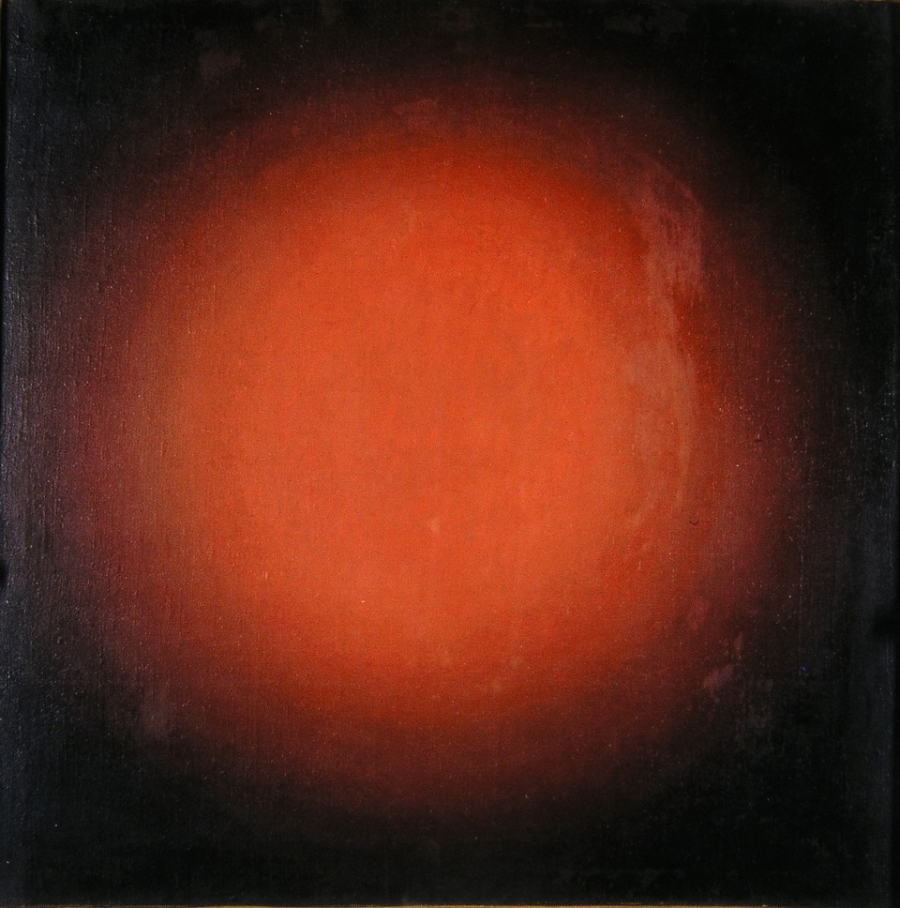SIRIUS B
By:
August 24, 2024
A (pro- or anti-) science-, mathematics-, technology-, space-, apocalypse-, dehumanization-, disenchantment-, and/or future-oriented poem published during sf’s emergent Radium Age (c. 1900–1935). Research and selection by Joshua Glenn.

Grey hill, granitic rock, be mine
Own thought. Let groping, grappling mist
Be backward borne to the green line
That the wind cut, the sun kissed.
And march, imponderable stars,
In mind’s dimension, bring to birth,
In formal symbol, Venus, Mars,
And map the orbit, map the earth.
But rock’s a wayward puzzle curled
In the sharp brain, that bubbling burn
‘S a window on some one-where world
Where algid tiny vapours turn.
Through dim notation feeble rays
Born of the dark companion shine,
And plunge through gravitation, blaze
The lucid pattern, dumb design,
As eyes glow, hallowing the dark
Beyond all doubting, disbelief,
In blank essential vision, stark
As ghosts walk in the stirring of a leaf.
Then stand up straight to sunward, serve
In the sun’s light, father of all;
Forget the quivering optic nerve,
And sing, sing where the arrows fall.
— The 1931 poem takes as its central image a white dwarf star, so dense that light has difficulty escaping its gravitational pull.
Read Roberts here.
From A Companion to Modernist Literature and Culture:
Apparently independently of Auden [the reference is to Auden’s “Under Sirius”], Michael Roberts wrote about “some one-where world / Where algid tiny vapours turn” (“Sirius B,” written February-June, 1931). “One-where” is borrowed from lines in Gerard Manley Hopkins’s “Harry Ploughman” about “his thew / That onewhere curded, onewhere sucked or sank.” To that extent, it has nothing to do with the new physics. However, Roberts’s transformation of the word from an adverb to an adjective significantly alters it. A “one-where” world is, apparently, a world that is not “somewhere” or “anywhere,” but in one place only. The adjective might seem redundant, but it reinforces the impression of the intense gravitational field of Sirius B, a star on the verge of becoming a black hole; it is so much in its own place that light can scarcely escape it.
RADIUM AGE PROTO-SF POETRY: Stephen Spender’s THE PYLONS | George Sterling’s THE TESTIMONY OF THE SUNS | Archibald MacLeish’s EINSTEIN | Thomas Thornely’s THE ATOM | C.S. Lewis’s DYMER | Stephen Vincent Benét’s METROPOLITAN NIGHTMARE | Robert Frost’s FIRE AND ICE | Aldous Huxley’s FIFTH PHILOSOPHER’S SONG | Sara Teasdale’s “THERE WILL COME SOFT RAINS” | Edith Södergran’s ON FOOT I HAD TO… | Robert Graves’s WELSH INCIDENT | Nancy Cunard’s ZEPPELINS | D.H. Lawrence’s WELLSIAN FUTURES | & many more.
